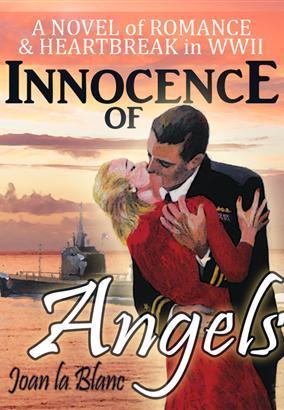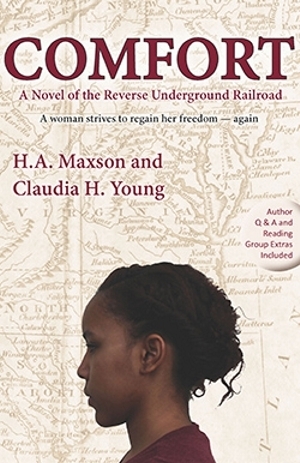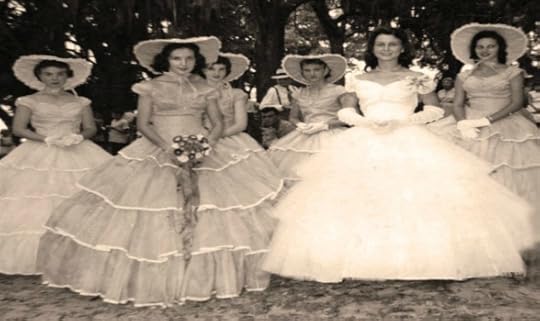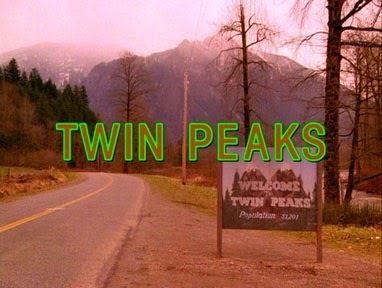S. Scott Whitaker's Blog, page 15
December 7, 2014
Authors David Poyer, Joan Lablanc, Claudia Young & Dr. Henry Mason to read at Pocomoke High's Writing Center Ribbon Cutting
Writing is a discipline, and like a muscle requires exercise. Good writing is good thinking, or so the saying goes. This Friday, December 12th, at 3:00 PM, Pocomoke High School welcomes four local authors to read from their work, and celebrate the written word.
Best selling author David Poyer, romance writer Joan Lablanc, Dr. Henry Maxson, and Claudia Young will read from their work to commemorate the opening of Pocomoke High School's Writing Center, 1817.
1817 (the number address of the school's facilities) is a staffed writing center that aims to help students develop and hone writing skills. The center aims to help students be more successful on high stakes testing, but teaching the craft of writing eclipses standardized testing, and focuses on thinking and processing skills that will allow the student to be more successful in college, and in their career field.
The skills required to be a successful writer are developed over a lifetime. Samuel Taylor Coleridge, said once that “Prose words in their best order; poetry the best words in the best order.” Coleridge was a critic, and essayist, but best known for his nightmarish poetry. What Coleridge's quote does not state directly is that the writer must process the thoughts into writing. This process of writing requires time, patience, and a great deal of reading. Writers, like athletes, need a place to exercise their muscles.
David Poyer, best known for his military thrillers, will read from his work. Poyer's writing is required reading at Annapolis Naval Academy, and if you haven't had the pleasure of reading his taught action thrillers, you are in for a treat. Poyer's work is topical, synthesizing provocative current events with military tension. Poyer's newest work is The Cruiser, a Dan Lenson novel.

Romance writer Joan Lablanc historical novels tell the story of nurse Anna Donovan, whose life before, during and after WWII is beautifully told in her Angels series.

Lastly, but certainly not least, Claudia Young and Dr. Henry Maxson will read from Comfort, their newest historical novel which tells the harrowing tale of Comfort, a freed slave who is sold back into slavery and taken back to the south via the reverse underground railroad (for more on the reverse underground direct your browser here).

If you are in the area please come on by and celebrate the written word. For maps and directions click here.
Best selling author David Poyer, romance writer Joan Lablanc, Dr. Henry Maxson, and Claudia Young will read from their work to commemorate the opening of Pocomoke High School's Writing Center, 1817.
1817 (the number address of the school's facilities) is a staffed writing center that aims to help students develop and hone writing skills. The center aims to help students be more successful on high stakes testing, but teaching the craft of writing eclipses standardized testing, and focuses on thinking and processing skills that will allow the student to be more successful in college, and in their career field.
The skills required to be a successful writer are developed over a lifetime. Samuel Taylor Coleridge, said once that “Prose words in their best order; poetry the best words in the best order.” Coleridge was a critic, and essayist, but best known for his nightmarish poetry. What Coleridge's quote does not state directly is that the writer must process the thoughts into writing. This process of writing requires time, patience, and a great deal of reading. Writers, like athletes, need a place to exercise their muscles.
David Poyer, best known for his military thrillers, will read from his work. Poyer's writing is required reading at Annapolis Naval Academy, and if you haven't had the pleasure of reading his taught action thrillers, you are in for a treat. Poyer's work is topical, synthesizing provocative current events with military tension. Poyer's newest work is The Cruiser, a Dan Lenson novel.

Romance writer Joan Lablanc historical novels tell the story of nurse Anna Donovan, whose life before, during and after WWII is beautifully told in her Angels series.

Lastly, but certainly not least, Claudia Young and Dr. Henry Maxson will read from Comfort, their newest historical novel which tells the harrowing tale of Comfort, a freed slave who is sold back into slavery and taken back to the south via the reverse underground railroad (for more on the reverse underground direct your browser here).

If you are in the area please come on by and celebrate the written word. For maps and directions click here.
Published on December 07, 2014 10:59
November 2, 2014
"The Success of Captain Whitaker's Dress" up on #TheGoodMenProject #litjournal

Inspired by true events, and family myth, this poem romances, satirizes, and questions gender and military machismo. I originally wrote it as an "adventure" poem, a narrative tale, but eventually became a discourse about the tale itself. You can find the gender bending Civil War poem here on The Good Men Project.
Published on November 02, 2014 12:54
October 25, 2014
"Sleeper Agent Love Letter" & "Spoon Is Me" up on #Synesthesia #LitJournal

Some of my new work has been published on Synesthesia, C.H. Gorrie's baby, which is published on ISSUU, a new publishing format. You can read my work in the section that begins on this page. Cursor or thumb ahead five pages to "Sleeper Agent Love Letter," and "Spoon is Me."
Happy autumn!
Published on October 25, 2014 17:51
October 9, 2014
Twin Peaks returns to Showtime, but does it deserve a reboot?
 Photo source: http://en.wikipedia.org/wiki/Twin_Peaks
Photo source: http://en.wikipedia.org/wiki/Twin_Peaks
This article is part of a series of investigations, reflections, and reminiscences by writers, artists, and musicians who were influenced by David Lynch’s seminal television show Twin Peaks. To read more, or to learn about participation, visit www.twinpeaksproject.com.
TIME TO RETURN TO TWIN PEAKS
Early this week, David Lynch and Mark Frost announced that they would continue exploring the forests of Twin Peaks on Showtime in 2016. Depending on the success of the Showtime series, further Twin Peaks productions would no doubt be discussed. Perhaps even a re-boot. This article was written three months prior to the recent Lynch/Frost news of a new series.
Twin Peaks has secured itself in the western TV canon for its chthonic descent into the self, into the Black Lodge, and into absurdity. Its recent Blu-ray re-release has the cult fav being watched by a whole new generation of fans. With recent cable TV masterpieces making television more relevant than film, it is time for a Twin Peaks reboot.
The Twin Peaks mythology has already reappeared in recent science fiction television, the JJ Abrams show Fringe featured mad scientist Walter wearing Dr. Jacoby’s glasses to better see the human aura. Walter and Jacoby were mates. Fitting too, for Fringe’s universe was also a descent into the mirror world; a parallel universe opened by Walter’s genius. In the Fringe universe, Walter used technology to open the door between worlds, however he was driven by fear, and love, the emotions used to open the doors to the White/Black Lodge. An ambitious reboot could pair Walter with Jacoby. Walter’s dual personalities would play right into the fold.
During HBO’s True Detective run this past winter, fans wished that Dale Cooper would show up, not just because True Detective took place in 1995, but because True Detective was the first show that was almost weird enough to match Twin Peaks. Fans cyber-pined for Cooper. Fans longed for one of the girls to be Ronette Pulaski. True Detective lacked Lynch’s absurd fingerprint, the humor, but hit the creepy unnerving horror with a bullseye. Lynch has his pulse on that emotion that lives right under our skin that makes us feel like prey, and True Detective nailed that emotion in spades. Ledoux, and the King in Yellow were trolls waiting in the tree line to kidnap and eat the young. It would be hard to name other TV bad guys that are as evil, and disturbing to watch as Bob/Leland and the Man from Another Place.
All great works of dramatic literature must be reinterpreted. The Performing Arts exists in the present. Poetry is translated, adapted, and retold. Novels are reimagined from different characters POV. Films are remade. And every so often television is remade. Battlestar Galactica was brilliantly reimagined for a post 9-11 audience, with a boatload of strong female, and minority roles. BSG took a generally well received space western from the early 1980s, and transformed it into a discussion about politics, religion, ecology, and the human spirit.
The Lynch Problem (with apologies to Mark Frost) is the only problem with remaking Twin Peaks. Why would anyone even attempt to recreate Lynch? It would be like the Gus Van Sant project to reshoot Psycho frame by frame. Why bother? Though Gus Van Sant, the artist, gains a great deal from following in the master’s footsteps, much like a poet translating Neruda, the audience does not. If Twin Peaks were to be rebooted there would be the great sacrifice of Lynch’s voice. Consider Lynch’s fetish for industrial settings. Consider Lynch’s blue collar workmen in the middle of a job, usually fixing a light. Consider Lynch’s earnestness, his Boy Scout polish, if you will. Consider the humor of Andy and Lucy, the Horne brothers, Lynch’s own Gordon Cole; in a reboot the humor would be the hardest chord to strike. Lynch’s visual style could be replicated. True Detective’s Cary Joji Fukunaga would make the Northwest look as fresh and luscious as Lynch did in 1990. And a script by Joss Whedon could give us laughs, and dramatic moments to undercut the weirdness, and terror. JJ Abrams, creator of Lost, and Fringe, could oversee such a project. He has a history of handling the cannon with care, while creating passion, and excitement for Star Trek, and Star Wars. Lynch and Frost didn’t come up with anything knew when they mined the Black Lodge for all of its creepy worth. This is ancient storytelling DNA. The chthonic themes give us the willies because it is dark underground, and at the genetic level we are coded to fear the dark. In our ancient past those that failed to fear the dark didn’t live long enough to pass on that gene. It’s Beowulf fighting for his life in Grendel’s mother’s lair, it’s Jesus and the Devil in the wild, it’s Luke in the cave on Dagobah, it’s Brandon Stark entering the underground labyrinth of the Three Eyed Crow, it’s Rust Cohle in Carcosa hunting, or being hunted by the King in Yellow. Consider what could happen in a reboot? Begin with Teresa Banks. There’s more to the Fat Trout Trailer Park than Lynch has shown us. How about Phillip Jeffries? What happened to him (and his wife--who was supposed to be Josie’s twin sister)? Who are the other lodge inhabitants that Phillip Jeffries encounters at their meetings? Is that Jase Robertson at the meeting? If so, where are the other Duck Dynasty guys? Cooper first encounters the Black Lodge’s influence here, following up on the disappearance of Chet Desmond, lead investigator for the Teresa Banks murder. And here the producers could give us more Cooper backstory! And Windom Earle! Told in Lost like flashbacks, the audience could watch the parallels between Cooper and Earle unfold. The story could build with more intense strokes.
Consider the fat that could be trimmed from season two, chiefly James and the Black Widow. There’s great potential with the Martel/Eckhardt plot knot, and the Jose storyline could be ironed out, not to mention exploring more of the psychic energy leaching out of Glastonbury Grove (little Nicky, Lana’s powers of love, etc). The sacrifices of rebooting Twin Peaks would hurt. Who else could do Laura Palmer’s mother other than Grace Zabriskie, who is so otherworldly weird (and weird looking) in that role. How about Pete’s earnestness? Who else could do Lucy and Andy like Kimmy Robertson and Harry Goaz? And no one is a better jackass than Dana Ashbrook’s Bobby Briggs. But a firmly grounded project would be able to firmly ground the series in its own mythology. The White/Black Lodge doesn’t feel like the heart of the mythology because David Lynch and Mark Frost wrote their way into that plot. They improvised, and when they filmed what many hoped would have been an ending to Twin Peaks, they went back and told the beginning of the story. Furthermore, a re-boot could make the James/Donna/Maddie story arc broader, deeper, and more terrifying, and less whiny. The body count would probably increase through today’s lens, and maybe it should. Kill Harold earlier! Knock off one of the expendable deputies! But consider, what if we cared more for Ronette Pulaski? Who is barely more than a plot point in season one, or FWM for that matter. Who did Ronette hang out with? How did her parents deal with her coke snorting, wild ways? Ditto with Mike. How did they deal with his love affair with Nadine Hurley? Glastonbury Grove, the Bookhouse Boys and their round table of bikers, rednecks, and good old boys could be it’s own series, ala Supernatural, or better yet Buffy.
Plus more Major Briggs. More Log Lady. More weird.
Mostly a reboot of the show could answer the question: What happened to Agent Cooper? The question that has been on the lips of fanboys and girls since 1991. And with the talent lining up to work with cable television high concept shows, who knows, a reimagining could eclipse the original. You know you’d watch it. You're probably already thinking about who would make a good Cooper. I know you are. Let’s meet at the corner of Sparkwood and 21 and discuss it.
Published on October 09, 2014 03:00
August 25, 2014
In this convention-defying poem, Whitaker reminds us that gender identity, sexual orientation, and clothing choice are not necessarily related
Thanks to the fine folks at
The Good Men Project
for accepting this poem, "An Old Man in a Blouse, At Market." This fellow is real, and he can often be seen walking my small town in the early morning hours. I often see people do a double -take driving by, or passing him in the local Wal-mart. He originally appeared in a poem here (day four), during the Tupelo Press 30/30 Project Fundraiser.
Special thanks to Charlie Bondhus and crew for their attention to detail throughout the editorial process. There is some fine poetry featured on the Project, and I'm happy, and honored to be featured.
Special thanks to Charlie Bondhus and crew for their attention to detail throughout the editorial process. There is some fine poetry featured on the Project, and I'm happy, and honored to be featured.
Published on August 25, 2014 16:57
August 19, 2014
Come on in, the water is fine. A review of Shovels & Rope's Swimming Time

Shovels and Rope’s third album, Swimming Time, is a romp through American musical styles. It doesn’t feel like a history lesson, but Shovels and Rope take us to school. With their dual voices, their garage rock percussion, and their shake, rattle and roll, Shovels and Rope could be described as Americana or roots music, but Shovels and Rope are bigger than Americana, they are rock and roll.
The opening track “When the Devil is All Around” is a radio friendly mid-tempo gospel tinged number that would fee right on a country music station or the local rock station. The tempo picks up a little with “Bridge on Fire” a love song as arson rocker that showcases the duo’s darker side lyricism, “The old bridge is on fire, and I’m the one to blame, a stone cold igniter.” But the jewel of the first fourth of the record is “Evil,” which could easily cue up on your bad day playlist. “But every now and then I get evil, I’m ashamed in the shadow of a steeple, I’m a lunatic looking through a keyhole.” It’s a great number, and a reminder that evil is within us all, not just on in the outside world.
The second fourth of Swimming Time begins with a slow number, and Cary Ann Hearst is at the top of her game on “After the Storm,” thematically and elegiacally fleshing out the power of water. “Fish Assassin” manages to thump the bible of rural living without it sounding phony, something Big Nashville has trouble with as of late (cue up every country song bragging about rural roots). The brilliant “Coping Mechanism” is a an old-timey barroom honky-tonk contemplating addictive behavior; rarely does addiction sound so good.
Shovels and Rope has hit upon a slew of contemporary issues on this record, perhaps none more forbidding than the climate change warning at the heart of the gloom-rocking title track, “Swimming Time.” The motif of the ocean and the water, runs through the record, and remains at the heart of the songwriting, and it has never sounded as menacing.
The married couple, Cary Ann Hearst, and husband Michael Trent, also serve up the history, “Stono River Blues” and “Thresher” contemplate personal and tragic history. That could also be said for their musical style which blends roots, gospel, country, and rock together--all that music rubbing elbows with each other is bound to create some pleasurable friction. And it does. When you listen to this record you can imagine every track performed live. That’s part of the magic this duo brings to their record, and part of what gives Shovels and Rope their authenticity.
What makes Shovels and Rope stand out from the Decemberists, or say Mumford & Sons, or even Miranda Lambert and whomever she is singing with this week, is the joy that comes through their voices. Something you can hear on more than one track. They can both belt it, and most of their music finds their fine voices interacting, intertwining, and entertaining. Their spare sound coupled with their engaging lyrics remind me of John Doe and Exene Cervenka, of the punk group X, and the Americana group The Knitters. In my opinion you don’t hear enough deuts. Why don’t more bands incorporate dual voices? That’s not for me to decide. That’s way above my paygrade. I, like you, listen to music for the joy of it. And Swimming Time is a joy. Come on in, the water’s fine.
Published on August 19, 2014 11:16
July 27, 2014
"Engines, no engines did I hear, or a pulse." Abductee 103. Partial Transcript

Check out my UFO alien abduction docu-poem here on Devilfish Review. Really, a poem about despair-- with an allusion to Macbeth.
My work will be featured on the Good Men Project later this year. More details to come. Working on prose, novel work, and short stories, and of course, fiddling with poetry manuscripts. Lots to be grateful for. Lots of work to do. Peace and peaches.
Ciao
S
Published on July 27, 2014 09:20
July 18, 2014
Music Review: Carnage 45 has a grip on the mic and hip hop history

Hip hop has become mainstream America, walking hand in hand with big country nashville and American Idol pop as a big three headed fashion, music and lifestyle brand. Hip hop is now a pallette for lifestyle choices, available in any flavor. But that hasn't always been the case. At one time hip hop was the DIY voice of independent African American MCs and DJs trying to escape poverty. Now hip hop is anything from Jack White rapping on “Lazaretto” to Blake Shelton’s “Boys Round Here” to poppy R&B radio commercial hits.
There's a fair amount of discussion recently about the state of hip hop among its players. Brand Nubian's Lamar recently bemoaned the state of hip hop in XXL questioning "how much water can you add to the whisky without getting drunk?" Lamar is really talking about hip hop aesthetics here, about country rap (Rebelcore) and rock rap, and Macklemore's cross cultural messages directed towards LGBT youth. Kid Cudi told Arsenio Hall that hip hop is holding the African American community back, referring to the negativity that hip hop has planted in the minds of the youth by glamorizing money and material wealth and gang violence. The Roots’ Questlove questioned the impact of selling hip hop culture as a package in a four part essay for Vulture. Questlove stated "Once hip hop is everywhere it is nowhere.” The danger of a culture gone mainstream is that it becomes commodity not culture, and the messages become a T-shirt. It becomes invisible. What the three aforementioned artists have in common is that they see a music genre that has been exploded and exploited so that it doesn’t resemble the music or the culture that gave it life back in the 1970s. Enter Shawn Dix, aka Carnage 45, a lover of hip hop music, and a living testament to the fact that music can change lives for the better. He makes music that Lamar would approve of, and has used hip hop as a vehicle for change that both Kid Cudi and Questlove would approve of. In short, Carnage 45’s latest effort is a true hip hop record.
Carnage’s third LP, Elite Breed, finds the MC wearing his hip hop history on his sleeve, delivering an album that embraces the past and looks forward. It’s an album that offers conflicting musical tones; lush backing vocals back Carnage’s tough tight rhymes. The music crafted here is like two arms wrestling, sugar and spice competing for the dominant flavor. Carnage (his name refers to the Carnage left behind when he takes the mic) keeps the message positive (“...I’d rather hear about who you motivated not who you led astray...”), and draws on his personal work ethic to ground the songs on the album. Elite Breed is laden with Machiavellian tropes of crown and princes, kings and queens, and rising from the ashes to the top. And Carnage has risen from nothing. “...from a little country town” (from “Reflecting Outro”) to hip hop success. Hard work has always been one of Carnage’s central themes, and Elite Breed finds Carnage in a reflective mood about his life, the life of his loved ones, and the life of hip hop music. Hypnotic R&B beats, rap battle bragging, and rising from nothing to become successful in his craft are the DNA of the record.
Elite Breed opens with “Standing Alone” which has Carnage dissing and dismissing those that have tried to bring him down over the years, while reinforcing the central theme of sticking with your dreams and working hard to get there. He could be talking about rap music in general here, when he raps “experience new things, y’all in a routine” over backing vocals that come out of a hipster’s world record dream; a honeyed female voice ahhing and humming. The track “Pawn to a King” encapsulates Carnage’s vision of coming up through hip hop’s ranks to find success, personal freedom of expression, and the master of his world, in Carnage’s case the 757 area code. “Pawn” even includes the club ready chorus “I came up.”
Carnage 45 wears his hip hop history on his sleeve, and has produced an album that recalls its history and looks ahead. “Monday Morning Dreams” recalls West Coast gangsta rap when Carnage tells how his uncle and friend were killed in a drive by. But Carnage isn't hyping this violence, nor glamorizing the violence or the lifestyle for that matter. Carnage would rather rap about something else other than senseless murder, but violence is something both he and America can not completely escape. At the end of the album in “Reflecting Outro” Carnage rhymes “I could have been another statistic dead or locked up, instead I’m Langston Hughes part two --I’m second to none” over layered beats and R&B samples.
The album is produced by a slew of collaborators and the beats are hypnotic head nodding, and are layered with a variety of samples and sound effects (the gunshots, for example, on “Monday Morning Dreams” would feel at home on a vintage NWA or Ice-T record, TuPac--whom many young music listeners do not know--is sampled). The overall musical effect is one of tension, almost mellow, at times, reflecting the 757’s laid back atmosphere. The backing tracks offer great contrast to Carnage’s gritty lyrics, such is the case with “The Overview” which finds Carnage laying rhymes over scratches and jazz clarinet riffs, and “Street Poetry” which features sampled piano riffs to float Carnage’s lyrics depicting poverty and desperation. But Carnage and his house of producers don’t back away from hard beats, “The Overview Goddess Edit” uses big rock synth beats to recraft the song into a stadium shaking, club ripping jam. Carnage and his team of producers sound ready for the summer concert series and the more intimate clubs.
Carnage's struggle through Elite Breed is personal, and throughout the album he hints at dark times, about hitting rock bottom and rising back to the top. His album delivers tales about black on black violence that made me think of what Chuck D said nearly 30 years ago, that rap music was the CNN of Black America. And what Carnage reports on is not just the discord among rappers, but the discord among people at every level, brought on by poverty, prison terms, and generations of disenfranchisement. It is in this way that Carnage 45 delivers a hip hop album that reminds one of hip hop’s roots, it’s golden early years (even the cover art recalls Jodeci’s debut record, and LL Cool J), while looking forward to its future.
You can find links to the downloads, and find more on Carnage 45 here.
Published on July 18, 2014 05:05
May 17, 2014
A new #poem a day for the Teen Writing Center and other Tupelo Press Projects

Greetings and salutations! May is half way through her course and I am half way through my writing marathon over at Tupelo Press. I'm raising money for the non-profit small press publisher by writing a new poem every day for the month of May. I have the pleasure of raising money so the independent publisher can continue to operate a Teen Writing Center near Charlottesville, and gather resources for teen outreach across the US, as well as publish a new translation of Pablo Neruda's Cantos, among other publishing projects. I have no ties to Tupelo Press, my little books and reviews make their homes elsewhere, so this is simply a way to try to give back to the community that I have participated in for the last twenty years.
Most small presses struggle to make ends meet, which equates to jobs. Paying writers, paying poets, paying editors and paying graphic artists. Paying people. Your donations, no matter how small, will pay artists for equitable work, as well as help generate resources so young people have a creative outlet for expression. Tupelo Press' out-of-the-box thinking in terms of generating capital for their needs speaks to a grass-roots, Democratic way of participating in the dialogue that is American poetry. I am happy to say that most of the writers that have contributed this year are women, whose collective voice is often forgotten by publishers. If you are one of my publishing friends, check out the way TP crowd-sources their projects.
May is half-way done. Come and see what the other writers and I have been cooking up. We write a new poem, in draft form, every day. You can donate by paypal, CC, or purchase a book to help me cross the finish line. I'll even write something just for you. Drop me a line and let me know. So far I have whipped Common Core Standards into a dystopian poem, praised my gut bacteria, composed a fugue, a l=a=n=g=u=a=g=e poem about spring trees, among others. Later today I will probably write about the spring peepers making so much noise in the aftermath of all the rain we had on the Eastern Shore last night. But come on by and see for yourself.
The 30/30 project page with links to donate http://tupelopress.wordpress.com/3030-project/ The donation page https://www.tupelopress.org/donate.php
Thank you so much for your time and support.
Scott Whitaker
Published on May 17, 2014 07:34
May 4, 2014
Today's 30/30 poem inspired by small town life, Snowden, and privacy
 What a beautiful weekend! Today's poem is inspired by the small village I live in on the Eastern Shore of VA (pictured above). One of the other 30/30 poets, Rachel Kubie, who wrote about Manning and Snowden yesterday, and both were knocking around in my head when I wrote today. Of course I wanted to think about how does privacy matter to me, in my little world? And of course, there is none, or nearly so. On a nightly walk one can learn so much about their neighbors, way more than what you could learn from a facebook status update, or an email. The final line is both ironic and earnest, and funny at the same time, or as I read it. Lots of imagery of carnivals and small town fairs pop up at the end. A future edit would see a tightening up of the verse, and possible reworking of the food imagery. But I'm wiped. As my neighbors could tell you, I've been sneezing, and playing with kids at the Y all day.
What a beautiful weekend! Today's poem is inspired by the small village I live in on the Eastern Shore of VA (pictured above). One of the other 30/30 poets, Rachel Kubie, who wrote about Manning and Snowden yesterday, and both were knocking around in my head when I wrote today. Of course I wanted to think about how does privacy matter to me, in my little world? And of course, there is none, or nearly so. On a nightly walk one can learn so much about their neighbors, way more than what you could learn from a facebook status update, or an email. The final line is both ironic and earnest, and funny at the same time, or as I read it. Lots of imagery of carnivals and small town fairs pop up at the end. A future edit would see a tightening up of the verse, and possible reworking of the food imagery. But I'm wiped. As my neighbors could tell you, I've been sneezing, and playing with kids at the Y all day.FYI: I probably won't blog too much this week. Lots of things happening at the school level. But I will be writing every day. Please stop by.
Here is a snippet from today's poem:
Privacy in a Small Town
Ask someone who lives in a small town.and they can tell you whose lawn is mowedand why. It is the same knowledge a childknows about a ball. Privacy? Perhaps high summer and winter, when the windows are clapped shut for air or heat, otherwise the frequency our rooms are transmitted on the tide of air that flows and wavesfrom seaside to bayside and the channels between.“Happiness was something I thought I could buyin a store,” or “This is why we cannot own nice things,”the stereo of two parents coming down on a son everyone knows is cheating at school, and life. His grandfather whored a heart to stoneand why should he be any different?
Read it here when it is posted.
Published on May 04, 2014 14:01



